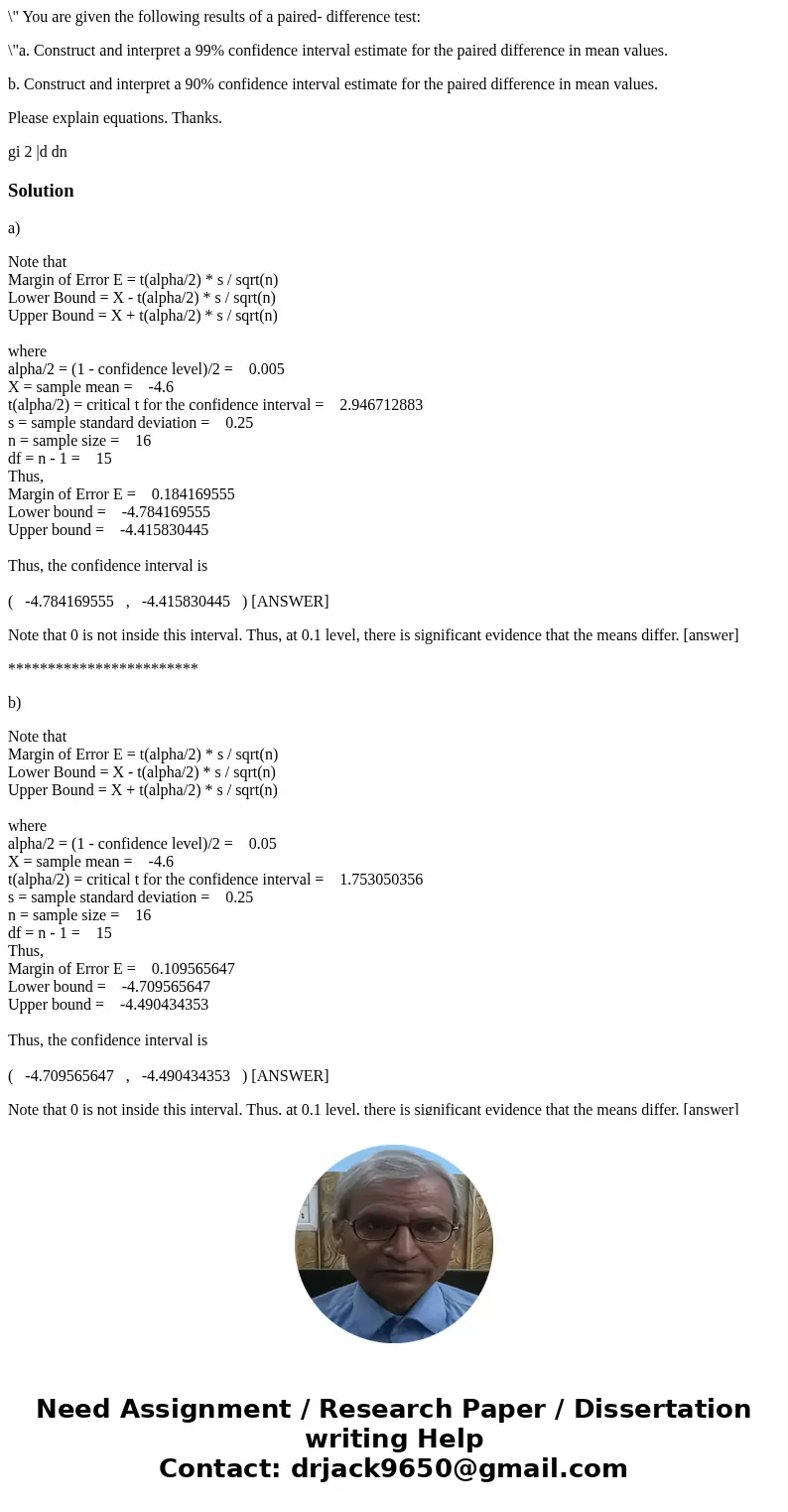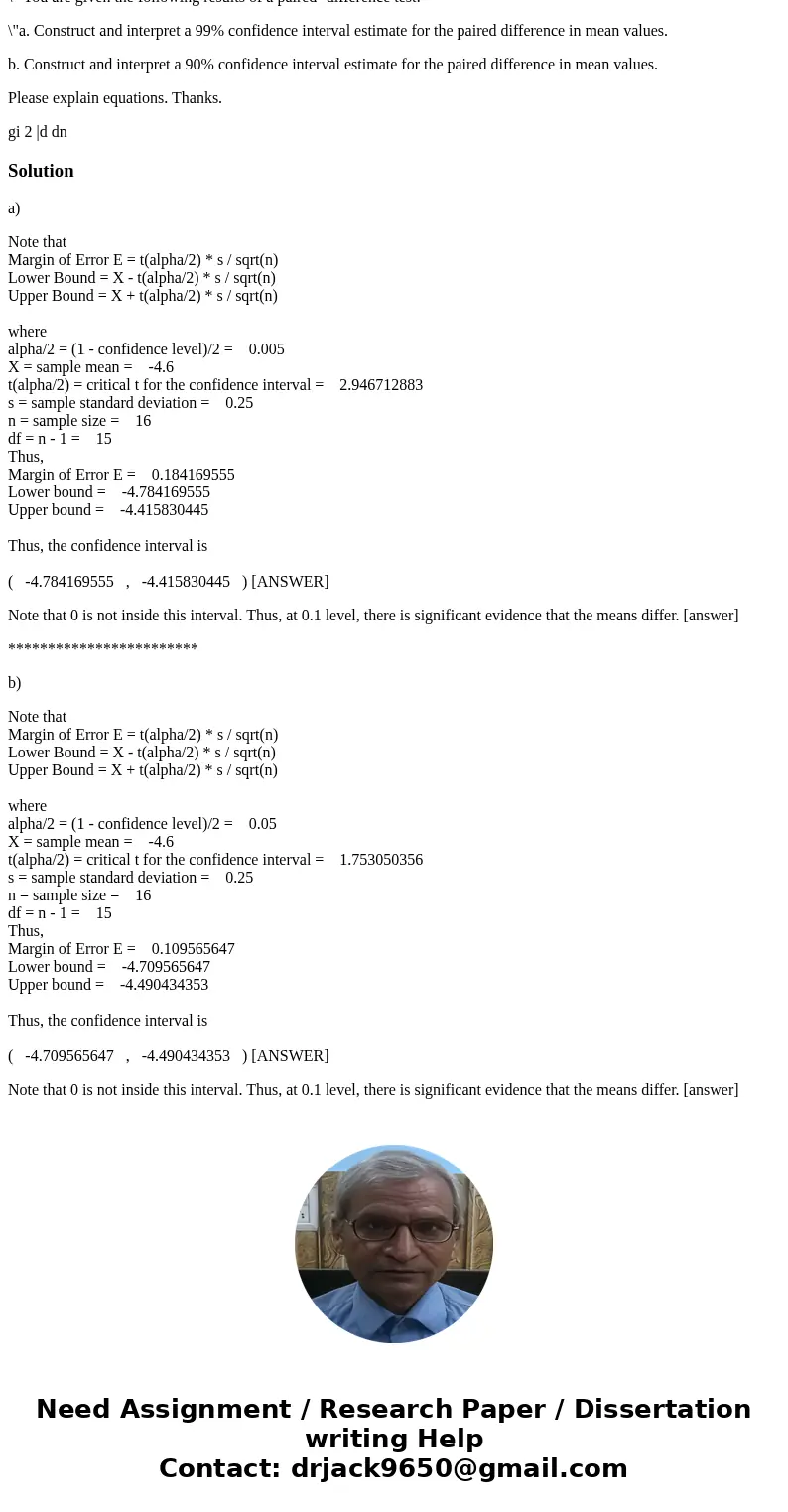You are given the following results of a paired difference
\" You are given the following results of a paired- difference test:
\"a. Construct and interpret a 99% confidence interval estimate for the paired difference in mean values.
b. Construct and interpret a 90% confidence interval estimate for the paired difference in mean values.
Please explain equations. Thanks.
gi 2 |d dnSolution
a)
Note that
Margin of Error E = t(alpha/2) * s / sqrt(n)
Lower Bound = X - t(alpha/2) * s / sqrt(n)
Upper Bound = X + t(alpha/2) * s / sqrt(n)
where
alpha/2 = (1 - confidence level)/2 = 0.005
X = sample mean = -4.6
t(alpha/2) = critical t for the confidence interval = 2.946712883
s = sample standard deviation = 0.25
n = sample size = 16
df = n - 1 = 15
Thus,
Margin of Error E = 0.184169555
Lower bound = -4.784169555
Upper bound = -4.415830445
Thus, the confidence interval is
( -4.784169555 , -4.415830445 ) [ANSWER]
Note that 0 is not inside this interval. Thus, at 0.1 level, there is significant evidence that the means differ. [answer]
************************
b)
Note that
Margin of Error E = t(alpha/2) * s / sqrt(n)
Lower Bound = X - t(alpha/2) * s / sqrt(n)
Upper Bound = X + t(alpha/2) * s / sqrt(n)
where
alpha/2 = (1 - confidence level)/2 = 0.05
X = sample mean = -4.6
t(alpha/2) = critical t for the confidence interval = 1.753050356
s = sample standard deviation = 0.25
n = sample size = 16
df = n - 1 = 15
Thus,
Margin of Error E = 0.109565647
Lower bound = -4.709565647
Upper bound = -4.490434353
Thus, the confidence interval is
( -4.709565647 , -4.490434353 ) [ANSWER]
Note that 0 is not inside this interval. Thus, at 0.1 level, there is significant evidence that the means differ. [answer]


 Homework Sourse
Homework Sourse